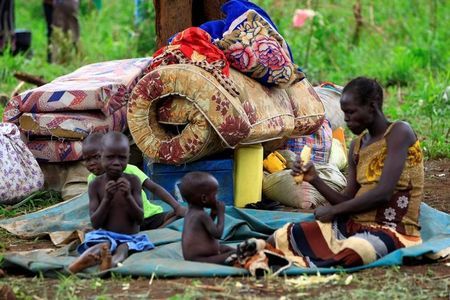People with disability and older people face greater risks of being caught in fighting and greater challenges in getting necessary humanitarian assistance, a rights group said in a new report released on Wednesday.
"People with disabilities and older people are often left behind during attacks and find themselves at much greater risk of starvation or abuse," said Shantha Rau Barriga, disability rights director at Human Rights Watch (HRW).
"This problem is especially acute in South Sudan, where decades of civil war have increased the number of people with disabilities, and where armed forces on both sides target civilians with impunity."
The rights group said it interviewed more than 45 people with disabilities and older people in displacement sites the country in February and March 2017. Human Right Watch also said it has documented numerous cases of people with disabilities and older people being shot, hacked to death, or burned alive in their houses by the belligerents thought the conflict in South Sudan.
According to the report, an older woman, who was displaced together with her family from Mayendit to Panyijar County in the former Unity state, said that no civilians were off-limits in the attacks on her village: "The first time the government soldiers and militias came to my village in 2015, the old men and women who could not run were killed," she said.
During a brutal attack by government forces on the Malakal PoC site in February 2016, the report found that three members of the same family with disabilities burned to death.
"When the fighting broke out, we fled to the UN compound and we left my mother and brother-in-law behind because they couldn’t walk and we couldn’t carry them," a 45-year-old Nuer woman said.
"The son of my brother-in-law, who had a mental health condition, would not leave his father behind so they all burned together in the fire,” she added.
The group pointed out that people with disabilities and older people have been targeted and abused by the warring parties, often because of their inability to flee ahead of attacks.
The report urged aid agencies to integrate the needs of people with disabilities and older people in their planning.




